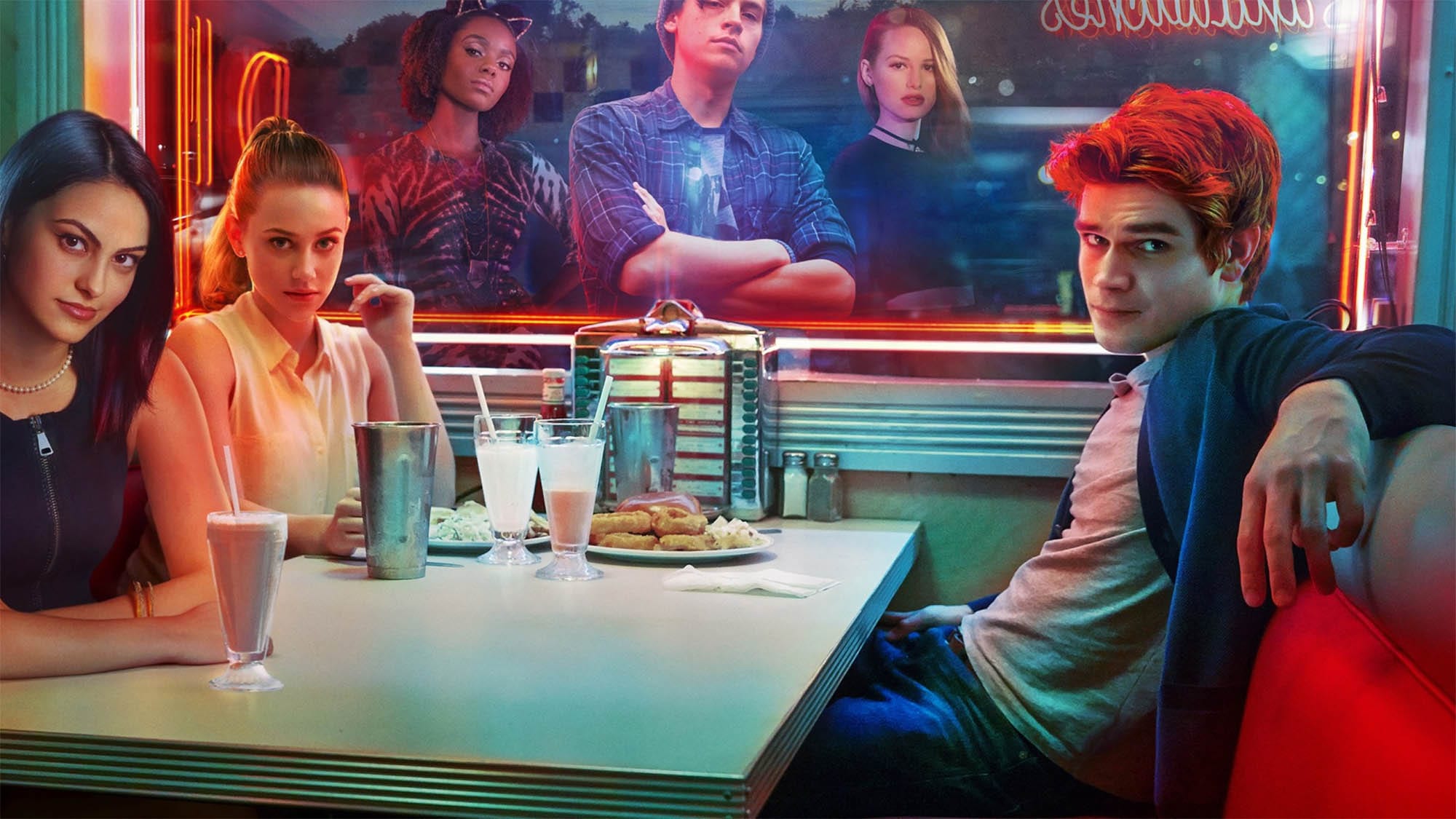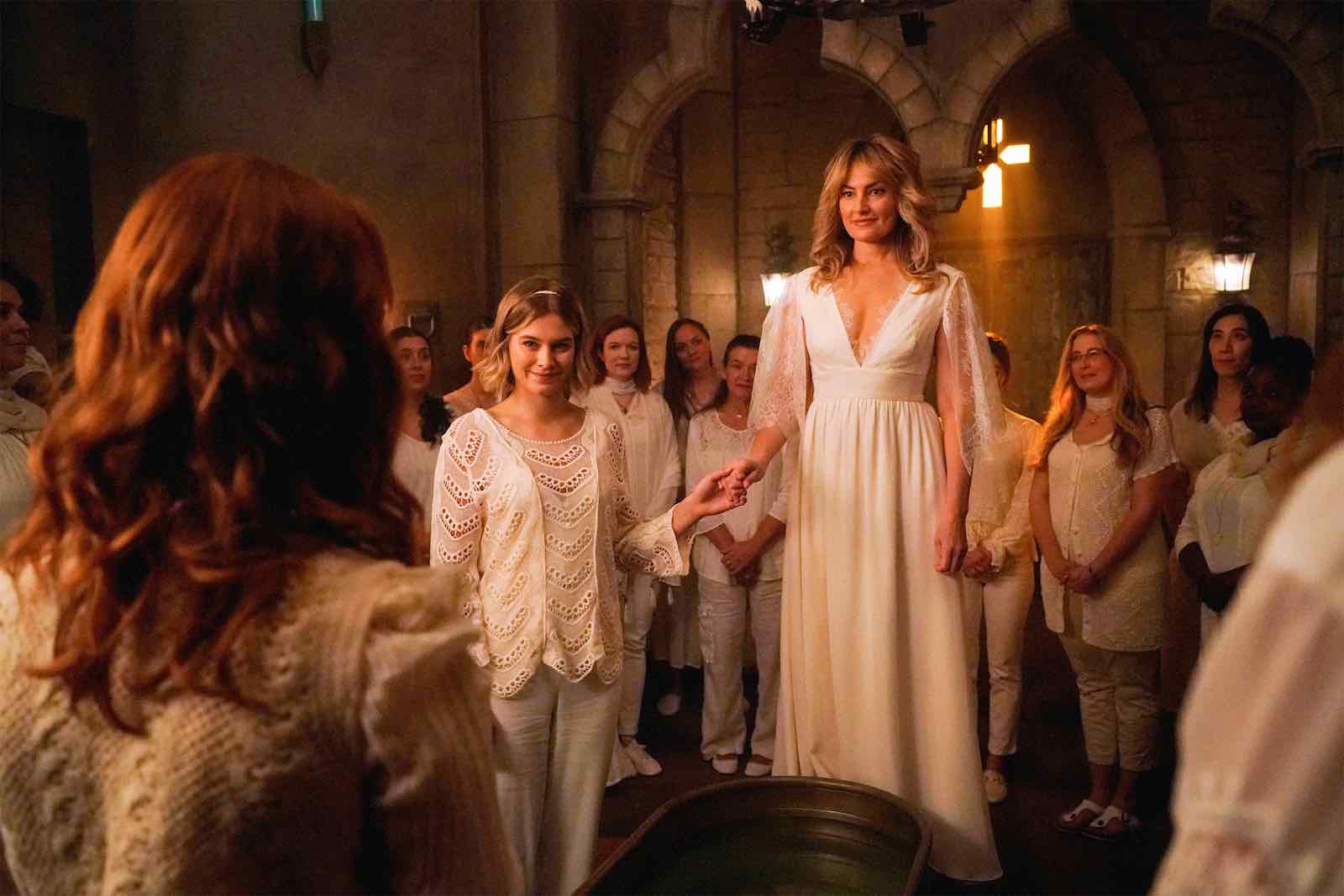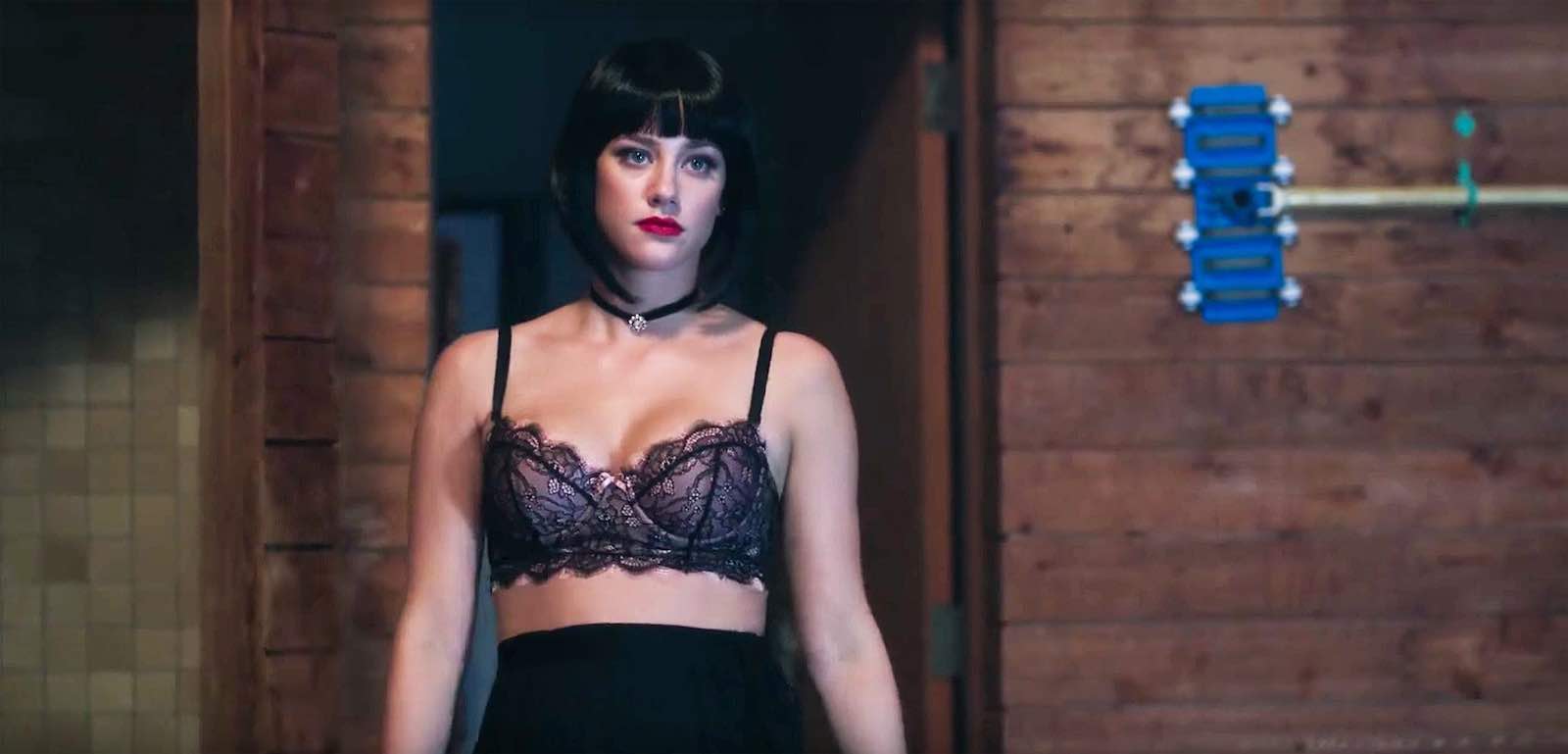
Reflections of a killer dad: ‘Riverdale”s genius mirroring of ‘Twin Peaks’
During a voiceover that could have easily been expressed by Jughead Jones (Cole Sprouse) in the past two seasons of Riverdale, The Log Lady (Catherine E. Coulson) mused in S2E22 of Twin Peaks, “Where there was once one, there are now two. Or were there always two? What is a reflection? A chance to see two? When there are chances for reflections, there can always be two — or more.”
The mysterious sentiment embodies so much of the horror at work in David Lynch and Mark Frost’s seminal TV show that so readily deals with the idea of dual identities, doppelgangers, and literal reflections. From the murderous possessed entity of Leland Palmer (Ray Wise) and BOB (Frank Silva), to the near-identical physical traits of Laura Palmer and cousin Maddy Ferguson (both played by Sheryl Lee).
Even the S2 finale saw Special Agent Dale Cooper (Kyle MacLachlan) seeing BOB in his own reflection before bashing his head into the mirror and maniacally laughing for an age, the show explores twins of various forms – peaks, people, places, and the idea that good and evil are simply distorted versions of one another.

Fittingly, Roberto Aguirre-Sacasa’s Riverdale features so many loving tributes to the show that it feels like a strange reflection of the iconic 90s hit – a modern day TV twin, complete with its own dark Americana, diner, killer dads, and Mädchen Amick (Twin Peaks: Fire Walk with Me).
S1 of the show certainly didn’t hold back in utilizing some of Lynch’s favorite duality tropes in its depiction of twin siblings Jason and Cheryl Blossom (Trevor Stines and Madelaine Petsch) and in Archie’s (KJ Apa) startling resemblance to poor murdered Jason (the Blossom bro was incidentally found blue-lipped and water-logged just like Laura but without the plastic wrapping – much more eco friendly). But it’s in S2 that Riverdale has really stepped up to utilize its Twin Peaks influence.
For instance, it was of no surprise to anyone familiar with Twin Peaks to discover that the identity of psycho killer Black Hood was actually Betty Cooper’s (Lili Reinhart) father Hal (Lochlyn Munro). If you knew what to look for, the clues were right there in front of us the whole time.

In S2E5, Black Hood leads Betty to an abandoned farmhouse where he instructs her to put on a black hood and look in the mirror because they’re “the same”. The moment eerily reflects that S2 finale of Twin Peaks where Dale is presented with a reflection of the man he’s been trying to figure out and hunt down.
Four episodes later in Riverdale’s Christmas episode, the meaning of that reflection is given weight as Betty has a dream about Black Hood climbing over a couch towards her (and the camera). The scene is an obvious reference to the Twin Peaks moment where Maddy has a terrifying vision of BOB lurching over a couch at her, but it isn’t just delicious fan service. The scene drops a huge clue about the identity of Black Hood – Betty’s father is the killer, just as Laura’s father is in Twin Peaks.

However, the similarities don’t just stop with killer identities, shot choices, and blatant tributes. In S2 we also saw Betty Cooper exploring her dark side in such a manner that we should probably expect The Secret Diary of Betty Cooper to be published anytime soon and reveal all the sordid exploits of her camgirl work and black wig wearing fun times with Jughead.
While examining the duality of Betty’s identity – the blonde sweet-natured good girl and the kinky bad girl brunette – Riverdale immediately draws parallels to the split dimensions of Laura Palmer, the homecoming queen harboring a slew of sinister secrets.
In her varying blonde and dark looks, Betty also resembles two of Lynch’s most famous heroines Renee Madison & Alice Wakefield (both portrayed by Patricia Arquette) – the dual female leads on opposing sides of Lost Highway’s fractured narrative. However, so far we’ve only seen Good Betty taking the lead. Will S3 see Riverdale fracturing like Lost Highway did, giving Dark Betty a chance to reign over the town? Here’s hoping.

Riverdale reflects much of Twin Peaks and its themes, offering a warped funhouse reflection of them and blurring the edges while being playful with form. Ostensibly they exist in the same universe split by a cracked looking glass – where there was once one, there is now two. As Riverdale continues, it’ll be interesting to see how it plays with more Twin Peaks and Lynchian tropes to smash down that mirror even further in exploring the diabolical reflections of small town Americana.



